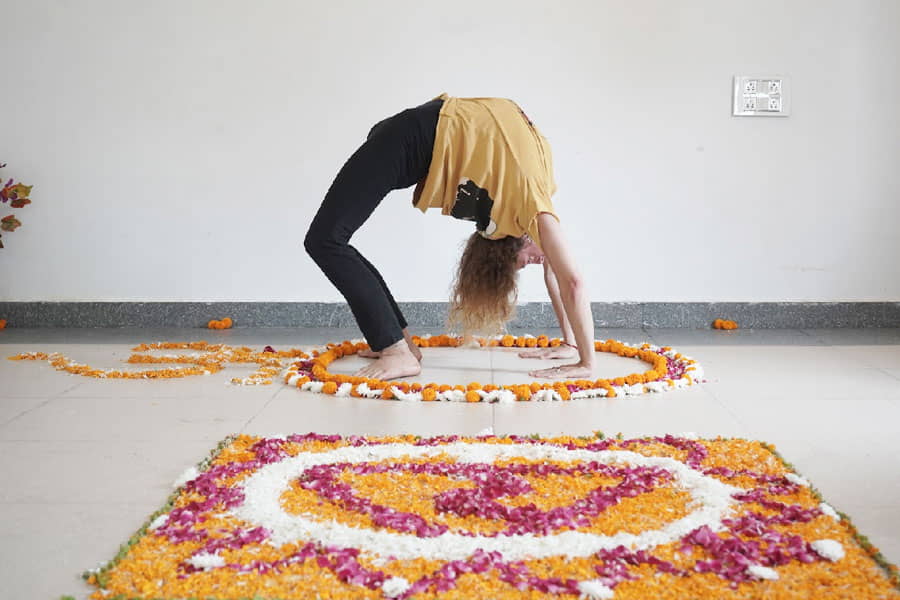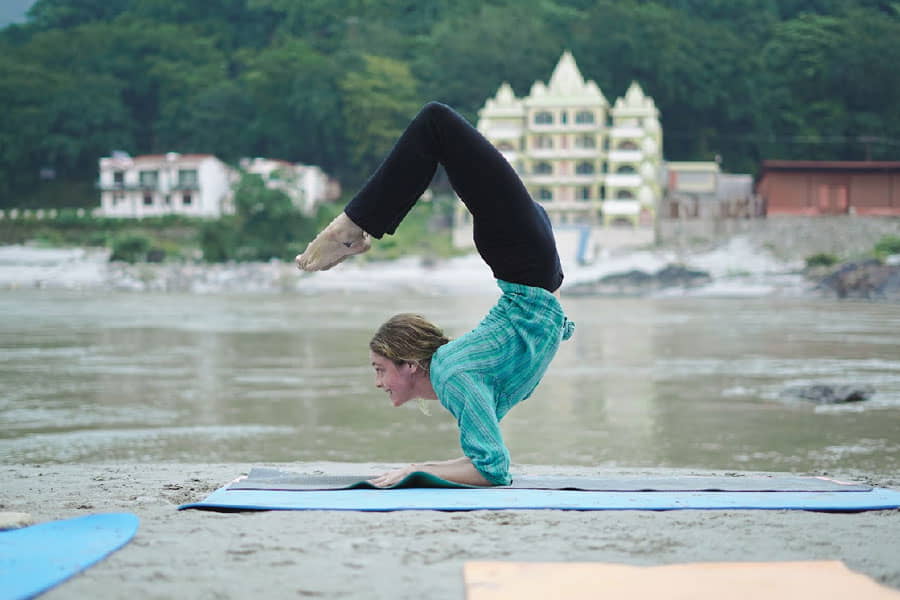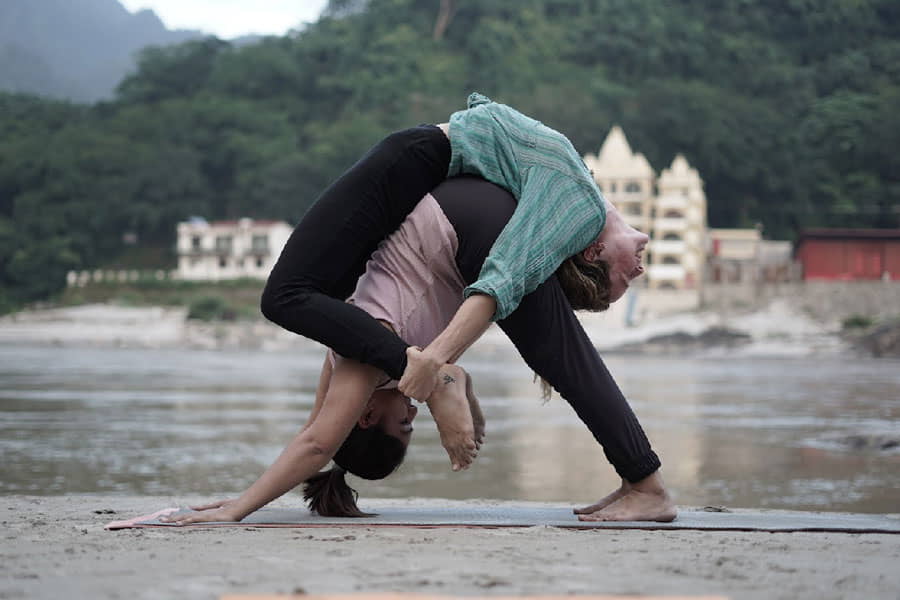300 Hour yoga teacher training in rishikesh
Home 300 Hour Yoga TTC in RishikeshWelcome To Yoga School
About - 300 Hours Yoga Teacher Training In Rishikesh

Yogic knowledge is deep and endless, and you will find yourself sinking in this huge ocean of knowledge. The more you discover about yoga, the more you learn. So, that is the reason, you probably are looking for the 300 hour yoga teacher training in rishikesh today. This is an advanced teacher training course, that will take you deeper into the subjects, that you already learnt in the 200 hour yoga ttc.
Additionally, doing the 300 hour yoga teacher training course is essential for you, if you want to pursue this course. The primary focus of the course is providing all the teachers with skills related to sequencing, alignments, and modifications.
Let us delve deeper into this arena with you.
What Will You Learn In This Course?
After you complete this course, you will be considered as a registered yoga teacher and that too a senior one. The anatomy classes are all set to get serious, with you delving deeper into the subject. Muscular and skeletal anatomy will assume a lot of importance here. The practical anatomy classes form the backbone of the training sessions. Moreover, you will be guided, on how you can teach myriad classes of students. As a foundational teacher, you may sometimes feel intimidated in a yoga class, in the presence of intermediates. But, after the completion of this program, things will be much different. You will be gaining a deeper knowledge of the asanas, meditation, and pranayama in this course. The 300 hour yoga ttc in rishikesh. will give you more in-depth knowledge and credibility as a yoga teacher.
The course also consists of sequencing classes, where you can independently handle all the aspects of your classes. Daily hands-on training with other students and your trainer, will also deepen your knowledge. Additionally, in this course, you will learn about more modifications and variations. Hip opening postures, back-bending postures, shoulder opening postures will be included in this course. You can practice such things in more depth. It is not just your yoga knowledge that will take you through the course. It is your skills as a yoga teacher, that will help you to create an impact in your class. You will learn about the teaching pedagogy in a yoga class, in complete detail.
Benefits Of The 300 Hour Yoga Teacher Training In Rishikesh
You will experience complete transformation, after you do this program. The rich knowledge will change you as a person, and you will reach another dimension.
The course is very comprehensive, so you will be able to gain a lot of knowledge, that you probably did not in the 200- hr yoga ttc. It also provides you ample scope for self-development.
You will get lasses from the best yoga practitioners, who will be able to guide you in the best possible manner.
You will also gain an edge in mind mastery, after having gone through the course.
The course also included various contemplation modes, that guarantee to take your practice to an all-new level.
This is the ideal course for you, if you have completed the 200-hour yoga ttc, and also want to move ahead to the 500 hour one in future.
Main Topics To Be Covered In This Course
Main Topics To Be Covered In 300 Hour Yoga TTC in Rishikesh

At Hrishikesh Yoga School, you will receive a chance to enjoy transformative yoga learning experiences. Amid favorable ambiance and blissfulness, you will get a chance for relishing the best yoga-practicing experience. A 300 hour yoga teacher training course In rishikesh assists in discovering a new version of your rejuvenating personality as you begin radiating love and peace.
Contact Us Enroll Now
 Hatha Yoga
Hatha Yoga
How to perform them in a meditative way.
 Ashtanga Vinyasa
Ashtanga Vinyasa
Learn to flow along with your asanas.
 Pranayam
Pranayam
Techniques for expansion of life force through different breath exercises.
 Relaxation
Relaxation
Calm your body and abstract yourself from your senses.
 Meditation
Meditation
How to perform them in a meditative way.
 Teaching
Teaching
Teaching methodology and real teaching experience.
 Anatomy & Peace
Anatomy & Peace
Know your body details. We won’t teach peace you will learn it yourself.
 Mantra Chanting
Mantra Chanting
Thanking the Universe for its infinite knowledge.
Welcome To Yoga School
Schedule & Memories Of 300 Hour Yoga TTC In Rishikesh

300 Hour Yoga TTC in Rishikesh Course Schedule
Most ashrams follow a unique schedule for resident yoga learners and practitioners. One has to wake up early in the morning, at around 6 am, and start the practice. We follow a pedagogical structure, wherein you will be led for Hatha Yoga classes first thing in the morning. We start with the Surya Pranam or Namaskar. Then you can take a short break, and have a light breakfast. It is mostly fruits and liquids, that you will have. We will also initiate Kundalini practice . Afterwards, you can start Pranayama. Alternate nostril breathing like Nadi Shodhana and Anulom-Vilom are the modalities, that you will learn most often.
In Ayurveda, you have to know that the sun is at its strongest around noon. So, you should have a huge and hearty lunch. The digestive fire in our bodies is also very strong around this time. Thereafter, you can engage in chanting and mantra meditation. We might also arrange Bhakti Geet sessions for you. After you are done with the sessions, and have managed to cool off a bit, you will be guided through the theoretical lessons. We end the yoga practice for the day, with Ashtanga-Vinyasa. Enjoy your dinner and go off to bed early. It will help you to wake up refreshed, the next morning.
06:30 AM –08:00 AM
- Traditional Hatha Yoga
08:30 AM –10:00 AM
- Breakfast is coming!
10:00 AM –11:00 AM
- Kundalini Yoga
12:00 PM –13:00 PM
- Pranayama
13:00 PM –14:00 PM
- Delicious Indian lunch
14:30 PM –15:30 PM
- Meditation - Mantra Chanting
16:00 PM –17:00 PM
- Philosophy
17:30 PM –19:00 PM
- Ashtanga Vinyasa
19:00 PM
- Enjoy your dinner, study & rest
Note - Make sure before 3rd of every month (means 1st and 2nd ) there will be no activities in the school. So 2nd students will arrive at school and will take enough rest then next day 3rd of morning 9.00am all the students have breakfast.. then the program will begin with flower decoration.
Yoga TTC Syllabus
300 Hour Multi-Style Yoga Teacher Training Course Syllabus

Each 100 Hour Yoga Teacher Training in Rishikesh is vital for you for growing. Learning from instructors or books, staying in our school, and following a daily schedule teach you so much. Hrishikesh Yoga School program schedule is crafted in a very balanced way to keep a student in the subject's thought all through the day. The whole schedule is the best combination of both theory and practical knowledge of yoga.
Hatha Yoga
Hatha Yoga is one of the yoga forms, which beginners go for. It prepares the practitioner for higher forms of yoga. Hatha Yoga covers all yoga forms in reality. So, no matter which genre or lineage you are practicing, it has to be Hatha Yoga. It provides the body with stability and power. So, once you have taken care of the external body, you can look inwards. Hatha Yoga comprises asanas, Pranayama, and meditation. You will be learning about the yoga form, based on the philosophical guidelines of Hatha Yoga Pradipika. Hatha Yoga is one of the easiest forms to start with, but you need to practice diligently so that you can gain finesse in your practice. At Hrishikesh Yoga, the best teachers guide you on the principles of Hatha Yoga. You will also learn various Satkarma Kriyas, which is considered as an important part of Hatha Yoga practices for purification. The most important kriyas are Neti, Nauli, Kapalbhati, Basti, Trataka, and Dhouti. When you are clean from inside, you can direct your energies to achieve higher objectives. That is what Hatha Yoga is. Hatha Yoga practice has a lot of benefits on the human body. You can get rid of anxiety and depression, fibromyalgia, arthritis, back pain, and also improve your balance through the practice of Hatha Yoga. It is one of the oldest, and considered as the classical form of yoga. You can join the best course like the 300 hour yoga TTC at Hrishikesh Yoga, to learn the form, under expert guidance.
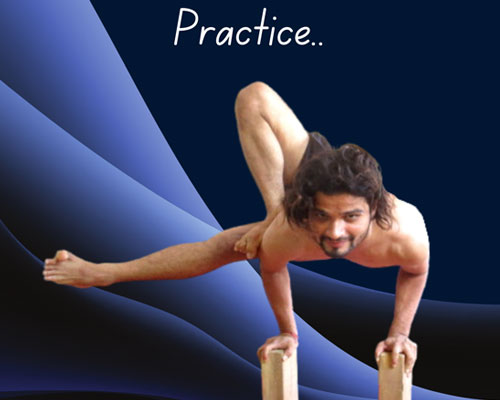
Students will discover each asana (Posture):
- Name of the Asana in English & Sanskrit
- Introduction & History of Asana
- Benefits
- How to do this Asana ?
- Therapeutically approaching
- Anatomical aspects of the Asana
- Corrections
- Modifications
- Contraindications
- Reference books
- Joint movements
- Surya Namaskar
- How to do this Asana doing meditatively by following 6 steps?
- Centring
- Entering
- Refining
- Holding
- Come out
- Reflection
STANDING POSTURES
- Tadasana( Mountain Pose)
- Utkatasana (Chair Pose)
- Vrksyasana (Tree Pose)Ver1 & 2
- Natarajasana (King DancerPose) Ver-1
- Padohastasana (Hand to feet Pose)
- Trikonasana (Triangle Pose)
- Virbhadrasana (Warrior Pose)-1
- Natarajasana – King Dancer Pose
- Ardha Chandrasana (after Virbhadrasana C) – Half Moon Pose
- Parsvatanasana – Intense Side Stretch Pose
- Parivrita Trikonasana – Revolving Trangle Pose
SITTING POSE
- Maalaasana (Garland Pose)
- Vajrasana (Kneeling Pose)
- Margarisana (Cat Pose)
- Simhasana (Lion Pose)
- Veerasana (Hero pose)
- Dandasana (Stamp Pose)
- Privrita Surya Yantrasana – Compass Pose
- Poschimotanasana – Intense Back Stretching Pose
- Vrisaasana – Bull Pose
- Mandukasana – Frog Pose
- Kurmasana – Tortoise Pose
- Supta Kurmasana – Reclining Tortoise Pose
- Matsyasana – Fish Pose
- Parvatasana – Mountain Pose, It has many variation
- Akarna Dhanurasana – Archer’s Pose/ Bow & Arrow Pose
- Paryankaasana – Couch Pose - link Virasana
- Trianga Mukhaika Pado Pascimottanasana – Three Limbs Forward Bend Pose
- Ardha Badha Padma Pascimotanasana – Half Bind Lotus West Stretch
- Janu Sirasana ABC – Head to Knee Pose
- Parighasana – Gate Pose
- Marichaasana ABCD - Sage Twist Pose
- Navasana – Boat Pose
- Bhujapidasana – Shoulder Press Pose
- Garbhapindasana/Garbhasana – Embryo in Womb Pose
- Upavista Konasana – Wide Angle Seated Forward Bend Pose
- Parivrita Upavista Konasana – Revolving Wide Angle Seated Forward Bend Pose
- Urdva Upavista Konasana – Upward Wide Angle Seated Forward Bend Pose
- Supta Konasana – Reclining Angle Pose
- Supta Padongustasana ABC – Reclining Hand to Big Toe Pose
- Ubhaya Padongustasana – Both Big Toe Pose
- Hanumanasana & variation–Monkey Pose- side, front, backbend
BACKWARD BENDING POSES
- Makarasana (Crocodile Pose)
- Byaghrasana (Tiger Pose)
- Astanga Namaskarasana (Salutation with Eight Limbs)
- Bhujangasana (Cobra pose)
- Ardha Salbhasana (Half Locust Pose)
- Kapotasna – Pigeon Pose
- Matsyasana- Fish Pose
- Chandrasana – Moon Pose
- Chakrasana – Wheel Pose
- Urdva Dhanurasana – Upward Bow Pose
- Purvattanasana – Upward Plank Pose
- Setubandhasana – Bridge Pose
- Uttanapadasana – Raised Legs Pose
- Utthan Pristhasana (Lizard Pose)
- Ashva Sachalanasana – Equestrian Pose
FORWARD BENDING POSES
- Balasana(Child Pose)
- Janushirsana -Head of the Knee Pose
- Parivrita Janushirasana -- Revolved Head of the Knee Pose
- Ardha Badha Padma Paschimotanasana -Half bound Lotus
- Marichyasana Ver - 1- Pose dedicated to the sage Marichi
- Badhakonasana- Butterfly Pose with forward bending
- Parivrita Janusirasana
- Navasana – Boat Pose
- Garbhapindasana - Embryo in Womb Pose
- Urdvamukha Pashcimotanasana – Upward-Facing Intense West Stretch Pose
- Halasana – Plough Pose
- Karnapidasana – Knee to Ear Pose/ Ear Pressure Pose
- Bhunamana Asana
- Kurmasana
SPINAL TWISTING POSES
- Ardha Mastyendrasana - Half Fish Pose
- Spinal Twisting In Kneeling Pose
- Twist in Dandasana
- Ardha Mastyendrasana – Half Fish Pose
- Triyaka Bhujangasana (Twisting Cobra Pose)
- Supta Matsyendrasana - Twist in Laying Back- Variations
- Markatasana – Monkey Spinal Twisting
- Meru Wakrasana - Spinal Twist, with leg extend
- Bhunamanasana - Spinal Twist Prostration Pose
- Parivritti Janu Sirshasana – Revolved Head to Knee Pose
INVERSION POSES
- Setu-Bandhasana (Bridge Pose)
- Viparit Karani - Inversion Pose
- Sarvangasana (Shoulder Stand)
BALANCING POSE
- Bakasana
- Ek Padaasana
- Garudasana
- Bakasana – Crow Pose
- Mayurasana – Peacock Pose
- Padma Mayurasana – Lotus Peacock Pose
- Pincha Mayurasana – Feathered Peacock Pose (Pincha=Feather)
- Vasistasana – Side Plank Pose
- Visvamitrasana – Sage Visvamitra Pose
Ashtanga Yoga
Astanga is a one of the most popular form of Yoga. The Practice demands and intense level of Physical Streangth and Flexibility. The yoga style known as Ashtanga Vinyasa is extremely vigorous and dynamic. In order to perform the Ashtanga Vinyasa sequence, you must cultivate a high level of concentration and intuition. You may refer to it as a mind-boy severe workout. It not only makes the body more flexible but also makes the mind more clear. The course Yoga is a system that also causes the body to produce a lot of heat. You may clear your life of all clutter because you are committed to practising Ashtanga Vinyasa Flow. Asanas, breathing, bandhas, and your gaze are all used in Ashtanga Vinyasa. You might refer to it as Ashtanga Tristhana. This kind of yoga first appeared in the 20th century. It is frequently described as a modern
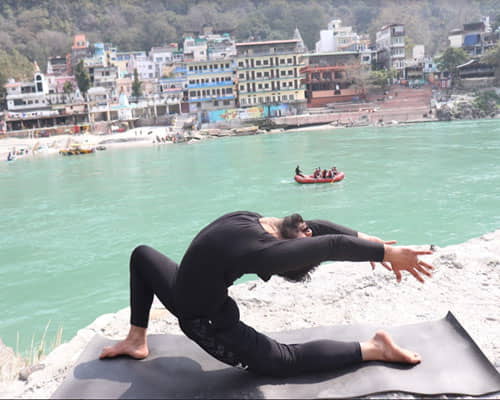
Surya Namaskara A
- Samasthiti
- Urdvahastasna
- Uttanasana A
- Uttanasana B
- Chaturanga Dandasana
- Urdvamukha Svanasana
- Adhomukha Svanasana
- Uttanasana B
- Uttanasana A
- Urdvahastasana
- Samasthiti
Surya Namaskara B
- Samasthiti
- Utkatasana
- Uttanasana A
- Uttanasana B
- Chaturanga Dandasana
- Urdvamukha Svanasana
- Adhomukha Svanasana
- Bibhadrasana A
- Chaturanga Dandasana
- Urdvamukha Svanasana
- Adhomukhasvanasana
- Birbhadrasana A
- Chaturanga Dandasana
- Urdvamukha Svanasana
- Adhomukha Svanasana
- Uttanasana B
- Uttanasana A
- Utkatasana
- Samathiti
- Primary Series – Standing Asanas
- Janusirsasana B – Head to Knee Pose B
- Janusirsasana A – Head to Knee Pose A
- Triyang Mukhaipada Paschimottanasana – One Leg Folded Forward Bend Pose
- Ardha Baddha Padma Paschimottanasana – Half Bound Lotus Forward Bend Pose
- Purvattanasana – Intense West Stretch
- Paschimottanasana C – Intense West Stretch Pose C
- Paschimottanasana B – Intense West Stretch Pose B
- Paschimottanasana A – Intense West Stretch Pose A
- Dandassana – Staff Pose
- Virbhadrasana B, Warrior Pose B
- Virbhadrasana A, Warrior Pose A
- Utkatasana, Fierce Pose
- Ardhabadha Padmottanasana, Half Bound Lotus Forward Bend Pose
- Utthita Hasta Padongusthasana,1,2,3,4, Extended Hand to Big Toes Pose
- Parsvatanasan,, Intense Side Stretch Pose
- Prasarita Padottanasasna D, Intense Wide Leg Stretch D
- Prasarita Padottanasasna C, Intense Wide Leg Stretch C
- Prasarita Padottanasasna B, Intense Wide Leg Stretch B
- Prasarita Padottanasasna A, Intense Wide Leg Stretch A
- Parivrita Parsvakonasana, Revolving Side Angle Pose
- Uthita Parsva Konasna, Extended Side Angle Pose
- Parivrita Trikonasana, Revolving Triangle Pose
- Utthita Trikonasana, Extended Triangle Pose
- Pada Angusthasana – B, Big Toe Pose - B
- Pada Angusthasana – A, Big Toe Pose – A
- Janusirsasana C – Head to Knee Pose C
- Marichasana A – Pose Dedicated to the Sage Marichi – A
- Marichasana B – Pose Dedicated to the Sage Marichi - B
- Marichasana C – Pose Dedicated to the Sage Marichi - C
- Marichasana D – Pose Dedicated to the Sage Marichi – D
Primary Series – Standing Asanas
- Janusirsasana B or Head to Knee Pose B
- Janusirsasana A or Head to Knee Pose A
- Triyang Mukhaipada Paschimottanasana or One Leg Folded Forward Bend Pose
- Ardhabaddha Padma Paschimottanasana or the Half-Bound Lotus Forward Bend Pose
- Purvattanasana – Intense West Stretch
- Paschimottanasana C or Intense West Stretch Pose C
- Paschimottanasana B or Intense West Stretch Pose B
- Paschimottanasana A or Intense West Stretch Pose A
- Dandasana – Staff Pose
- Virabhadrasana B, Warrior Pose B
- Virabhadrasana A, Warrior Pose A
- Utkatasana, Fierce Pose
- Ardhabadha Padmottanasana or the Half Bound Lotus Forward Bend Pose
- Utthita Hasta Padongusthasana, or 1,2,3,4, Extended Hand to Big Toes Pose
- Parsvottanasana, Intense Side Stretch Pose
- Prasarita Padottanasasna D or Intense Wide Leg Stretch D
- Prasarita Padottanasasna C or Intense Wide Leg Stretch C
- Prasarita Padottanasasna B or Intense Wide Leg Stretch B
- Prasarita Padottanasasna A or Intense Wide Leg Stretch A
- Parivrita Parsvakonasana, Revolving Side Angle Pose
- Utthita Parsva Konasana, Extended Side Angle Pose
- Parivrita Trikonasana, Revolving Triangle Pose
- Utthita Trikonasana, Extended Triangle Pose
- Padangusthasana – B, or Big Toe Pose - B
- Padangusthasana – A, or Big Toe Pose – A
- Janusirsasana C or Head to Knee Pose C
- Marichasana A
- Marichasana B
- Marichasana C
- Marichasana D
Kundalini Yoga
Kundalini is the source of energy in a Human Body. We can activate it by Yoga Practice. We study about Chakaras and How it works in Our Body in a Kundalini Yoga. The spiritual force that is dormantly held in the Muladhara, or root chakra, is referred to as "Kundalini." The serpent that is sleeping inside the physical body is roused by practising Kundalini yoga. The stirred snake ascends through the body's chakras, passing through the base chakra. Additionally, as it goes through each chakra, the same awakens its energy. By doing this, you can raise your body's vibrational frequency. Breath, motion, and sound are the fundamental elements. Mantras are typically chanted at the beginning of a Kundalini Yoga practise to assist quiet the mind. After a session, you can effortlessly transition into physical activity. Following this phase are relaxation, meditation, and affirmations, then the kriyas. Self-awareness is the ultimate objective. By the regular practice of Kundalini, it helps in achieving a healthy and flexible body
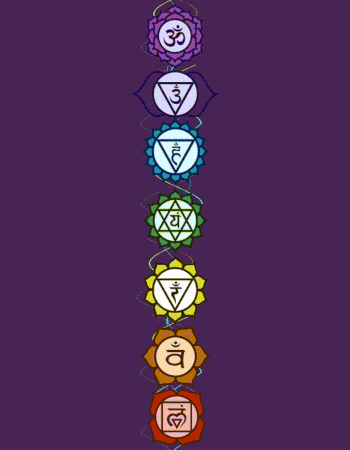
- Pranayama and Kriyas eliminate diseases from your mind and body
- Kundalini practice enhances your immunity by becoming free from several diseases
- High self-awareness and more receptiveness
- Purification of body decreasing toxins
- Awareness of breath that enhances well being
- Good life discipline
- Real spiritual awakening
- Good control over energy that assists in all kind of healing.
Pranayama in 100 Hour Yoga Teacher Training
If you are studying yoga, then you will also be learning about Pranayama. Both practices are intertwined with one another. If you practice one without the other, then the results will not be accomplished. Initially, most students practice asanas, and Pranayama as separate kriyas. However, when you learn to control breathing patterns, you will give more importance to Pranayama. There are various types of breathing. You can practice clavicular breathing, abdominal breathing, and thoracic breathing. Each one serves a common function, of that of respiration and several others. At Hrishikesh Yoga School, you will learn about the various Pranayamas in complete detail.
The best teachers teach you Pranayama techniques as a part of the 300 hour yoga teacher training in india, which is a basic foundation course. Alternate nostril breathing is one of the breathing techniques, that you will get to practice and master early on. It will help you to guide the life force or ‘Prana’ through the nadis. Kumbhaka, Rechaka, and Puraka are the three segments of your breath patterns. Once you master these, you can become the controller of breathing patterns. Life expectancy is also dependant on how you breathe and how fast or slow. Sages and seers often live for more than 100 years, due to their control over breathing patterns. So, you can now perfect the science of breathing at Hrishikesh Yoga School. After a point in time, in your yoga practice, you will let the breath control or lead the movements. The breath also links one pose with another.
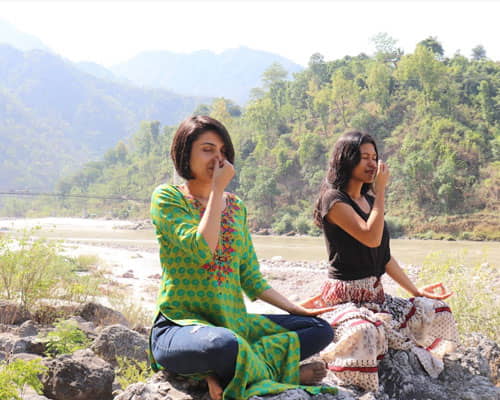
Inttroduction of Pranayam
- Meaning of Pranayama
- Definition
- Breathing experiment
- Conclusion
Kapalbhati Pranayama (Frontal brain cleaning breath)
- Introduction - Meaning - Benefits - Contraindications
- Duration of practice - Demonstration of Kapalbhati Pranayama
- Preparation of Kapalbhati for students - Technique One
- How to do Kapalbhati Pranayama?
Sheetali Pranayama (Cooling breath)
- Introduction – Meaning - Benefits - Contraindications
- Duration of practice - Demonstration of Shitali Pranayama
- Preparation of Shitali for students
- Technique One
- How to do Shitali Pranayama?
Sheetkari Pranayam (Hissing Breath)
- Introduction - Meaning - Benefits - Contraindications
- Duration of practice - Demonstration of Shitkari Pranayama
- Preparation of Shitkari for students
- Technique One
- How to do Shitkari Pranayama?
Bhastrika Pranayam (Bellows Breath)
- Introduction - Meaning - Benefits - Contraindications- Duration of practice
- Demonstration of Bhastrika Pranayama
- Preparation of Bhastrika for students
- Technique One
- How to do Bhastrika Pranayama?
Bhramri Pranayama (Humming Bee Breath)
- Introduction - Meaning - Benefits - Contraindications- Duration of practice
- Demonstration of Bhramri Pranayama
- Preparation of Bhramri for students
- Technique One
- How to do Bhramri Pranayama?
Ujjayi (Psychic Breath)
- Introduction - Meaning - Benefits - Contraindications- Duration of practice
- Demonstration of Ujjayi Pranayama
- Preparation of Ujjayi for students
- Technique One
- How to do Ujjayi Pranayama
Nadi Shodhana Pranayama (Psychic Network / Chanel Purification)
- Introduction - Meaning - Benefits - Contraindications- Duration of practice
- Duration of practice
- Demonstration of Nadi shodhana Pranayama
- Preparation of Nadi shodhana for students
- Technique One
- How to do Nadi shodhana Pranayama
Satkarma
Shatkarma Kriyas are Shuddhi Kriyas, which you must practice to prepare your body for yoga practice. They are six in number and hence the name ‘Shatkarma.’ You can use them as a complementary part of yoga, to cleanse the excretory system, digestive system, and respiratory system. When you take bath, you remove the dead cells from the body. In a similar manner, you can cleanse the internal parts, you actually detoxify the body. You will read about Shatkarma kriyas in both Hatha Yoga Pradipika and other sacred texts. The text also mentions the sequence, in which you must practice the kriyas.
You will learn about the Shatkarma kriyas at Hrishikesh Yoga School. The trained teachers will help you to practice and master the same. The order in which, you are supposed to practice the kriyas are Dhouti, Basti, Neti, Trataka, Nauli, and Kapalbhati. When you practice the above kriyas in a proper way, you can derive many different benefits. Firstly, you will be able to balance the Tri-dosha. You can also bring balance to the body and mind processes. Additionally, you can excrete the toxins from the body through the excretory organs and the skin, as well. Your blood circulation and immunity also improve manifold. Shatkarma is the first part of Niyama, that is ‘Saucha’. Join the 300 hour yoga teacher training to learn about the same in complete details. The best and most well-experienced teachers teach the kriyas at the school, Hrishikesh Yoga. So, you must head to the school today and enrol yourself.
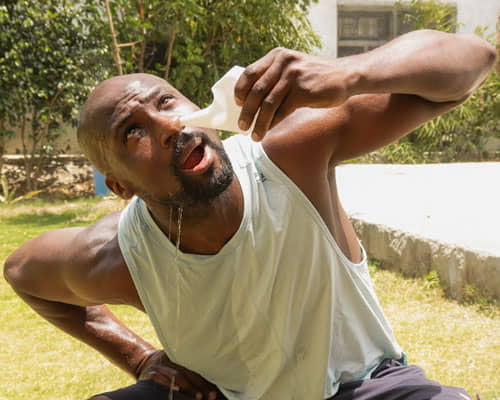
Introduction to Six types of Satkarma
- Meaning of Satkarma
- Benefits
- Introduction to the practical Jala Neti
- Contradictions
- Benefits
- Preparation of Jala Neti
- Demonstration of Jala Neti by Teacher
- Technique Practice with students
- Introduction to the practical Sutraneti
- Contradictions
- Benefits
- Preparation of Sutraneti
- Demonstration of Sutraneti by Teacher
- Technique Practice with students
- With the presence of a teacher
- With the presence of a teacher, students will prepare the class to practice Jala Neti & Sutra Neti themself. The teacher will observe the class.
- Jalandhara Bandha
- Introduction - Meaning - Benefits
- Contradictions - Duration of practice
- Preparation
- Demonstration
- Technique Practice with students
- Udiyana Bandha
- Introduction - Meaning - Benefits
- Contradictions - Duration of practice
- Preparation
- Demonstration
- Technique Practice with students
- Mula Bandha
- Introduction - Meaning - Benefits
- Contradictions - Duration of practice
- Preparation
- Demonstration
- Technique Practice with students
- Maha Bandha
- Introduction - Meaning - Benefits
- Contradictions - Duration of practice
- Preparation
- Demonstration
- Technique Practice with students
Bandha
Bandhas are energy locks, to manipulate the energy in certain body parts. Yogis perform bandhas to lock the energy within the Sushumna nadi. It is also called the pathway, which does not have any obstacles. In bandhas, you have to contract certain muscle zones inside the body. There are three important bandhas – Moolbandh, Jalandhara bandha, and Uddhiyana bandha. There is one Maha bandha, wherein you perform all the bandhas together. You can release Prana through certain openings in the body, and they happen to be in the genital area, the navel, and the throat. Apart from the major bandhas, you will also come across hand and feet bandhas. At Hrishikesh Yoga School, you will be able to understand the details of bandhas.
As a part of the yoga teacher training in rishikesh, you will be able to learn and practice the bandhas in details. As a part of your yoga practice, you can combine bandhas and mudras. Breathing co-ordination with bandhas is very important. If you do a few breathing exercises before bandha, the energy will flow quite fast and readily. The energy which you are trying to transmit, can travel with the Prana very quickly. You will also learn both types of breath retention, which are absolutely necessary to perform bandhas. Wherever you apply the bandhas, the organs in that area will get activated. Your spine will also stay healthy, with regular and proper practice of bandhas. The best teachers guide you through the practice.
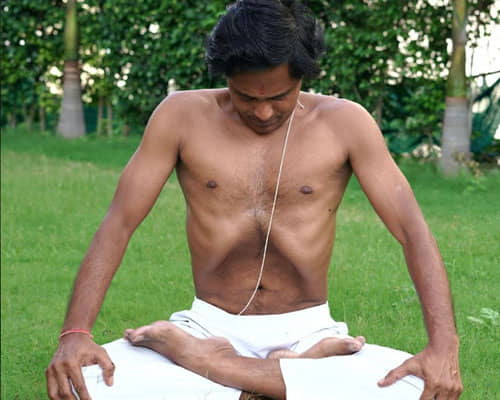
Jalandhara Bandha
- Introduction - Meaning - Benefits
- Contraindications- Duration of practice
- Preparation
- Demonstration
- Technique Practice with students
Udiyana Bandha
- Introduction - Meaning - Benefits
- Contraindications- Duration of practice
- Preparation
- Demonstration
- Technique Practice with students
Mula Bandha
- Introduction - Meaning - Benefits
- Contraindications- Duration of practice
- Preparation
- Demonstration
- Technique Practice with students
Maha Bandha
- Introduction - Meaning - Benefits
- Contraindications- Duration of practice
- Preparation
- Demonstration
- Technique Practice with students
Mudra
The word mudra has different connotations, but the one in yoga means seals or hand gestures. The position of the fingers and hands can influence the mind, the body and also your spiritual development. They can link the brain to the body, and also lessen pain in various other body parts. So, if you deduce the meaning of mudras, they actually guide the flow of energy to specific areas of the brain. You can use the mudras in conjunction with breathing, to facilitate the flow of prana through the body. You will learn about mudras, as a part of the yoga teacher training course. Mudras are very powerful as a self-care tool, and you can practice it alone, after you have completed the course. Hrishikesh Yoga School is one of the top schools, where you can enroll for the course.
According to the principles of Ayurveda, there are five elements that govern the human body. They are fire, water, earth, air, and spirit. When the body is healthy, these are balanced. However, any sort of imbalance can lead to illnesses. The fingers also correspond to these five elements. The thumb represents fire, index finger represents air, middle finger represents space, ring finger represents earth, and little finger represents water. Anybody irrespective of age, gender, or religion can practice mudras. So, you can say that various kriyas in the realm of yoga can affect you at a very deeper level. Sometimes mudras are lifesaving during emergencies. You must learn the right techniques to get all the benfits of the mudras.
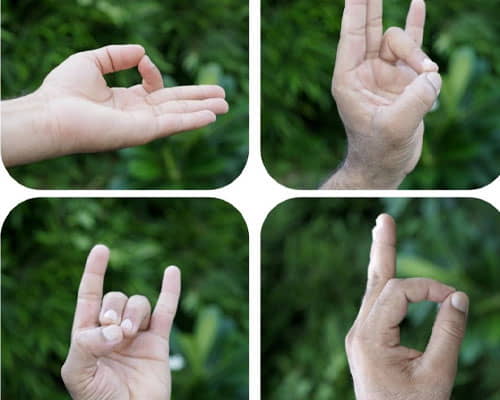
Jnana Mudra (Psychic Gesture of Knowledge)
- Introduction - Benefits - Duration
- Preparation - Demonstration
- Technique Practice with students
Chin Mudra (Psychic Gesture of Consciousness)
- Introduction - Benefits - Duration
- Preparation - Demonstration
- Technique Practice with students
Bhairava Mudra – Shiva Mudra
- Introduction - Benefits - Duration
- Preparation - Demonstration
- Technique Practice with students
Hridaya Mudra – Heart gesture
- Introduction - Benefits - Duration
- Preparation - Demonstration
- Technique Practice with students
Meditation
Meditation is a holistic practice that has been around for ages. It was originally designed to deepen the understanding of mystical forces. You can use meditation to alleviate various symptoms like depression and stress. During meditation, the focus should be on the present. You can call it mindfulness meditation as well. At Hrishikesh Yoga Ashram, you will be able to focus on the various elements of meditation. Focussing your attention on one object or thought is the main aspect of meditation. If you focus your attention, you will be able to free your mind of distractions. Relaxed breathing is another premise of breathing. The slower your breath, the better it is for your body. The best teachers will train you on the aspects of meditation. As you get all the skills required, you will be able to meditate anywhere. The best form of meditation, that you can practice at the ashram is Guided meditation. It involves visualization. Use as many senses as possible while meditating. Mantras can also aid you in meditation. They are derived from Sanskrit, and have deep meanings. Meditation has the power to improve your physical, emotional, and mental well-being. You will learn about the best meditative aspects at Hrishikesh Yoga School. Join the school to get the best benefits of yogic meditation. It is an important part of the 300 hour yoga teacher training course. Avail yourself of a lifetime’s benefit with yoga.
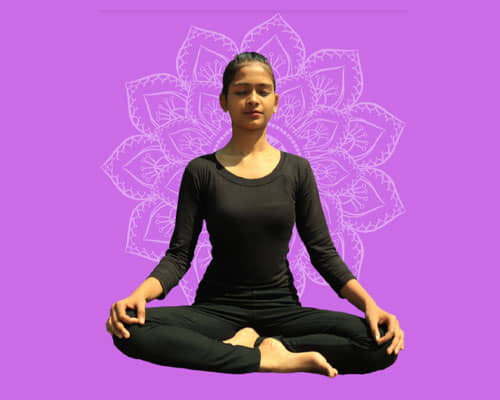
- Introduction of Meditation/ Meaning and things
- Mantra Chanting with meaning and Benefits/Practice
- Apa Meditation with meaning and Benefits/Practice
- Sixty One Energy Points discussion
- OM Meditation with meaning and Benefits/ Practice
- The practice of Osho Dynamic Meditation
- Music Meditation Practice
- Dancing Meditation Practice
- Walking Meditation Practice
- Introduction of Tratak meditation/Stages /Benefits
- The practice of Dot Meditation
- The practice of Yantra Meditation
- Practice of Candle Meditation
Relaxation
Synopsis of Featured Teachings:
- Point-to-Point Movement and then Stillness
- Point-to-Point Tension and Relaxation
- Entire-Body Tension and Relaxation
- Point-to-Point Relaxation
- Selective Tension and Relaxation of Body Parts
Anatomy And Physiology
Yoga anatomy is the study of the human internal structure. It consists of bones and muscles, and more. The internal structure comprises tendons, ligaments, and connective tissues as well. Anyone who goes through yoga teacher training, must undergo the anatomy classes. However, that is not all. You also need to learn about the biological processes, that go on inside the body. And that is what, Physiology is all about. At Hrishikesh Yoga School, you will learn about the intricacies of the human skeleton and muscular body. The teachers have the best education and knowledge, to provide you insight on the same. If you enrol for the 300 hour yoga teacher training course, then you will learn about the same. Yoga is not just about poses; it is also about breathing techniques. When you know the internal structure of the body, then you can help your students to work around their injuries. The alignments and modifications are very important, so that you can work with all types of students. You will be able to understand movements better, if you attend the classes. You can also manage pain in a better manner, with poses that concentrate on balance. If you suffer from chronic issues, you can also get aid in the same. The best teachers who are well-versed in yoga anatomy and physiology will give direction to your practice. Students can get relief from a variety of yoga poses, with this knowledge.
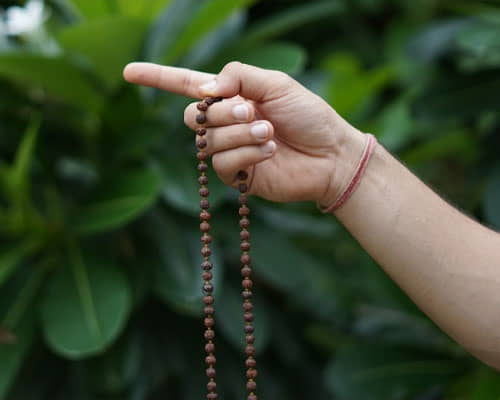
We study effects of asanas or Breathing Exercise on Muscles, Bones, Joints, etc. in Yoga Anatomy
- Introduction and significance of Anatomy and physiology in Yogic practices
- Introduction to Organ Systems
- Integumentary System
- Introduction to Skeletal System
- Joints and Skull
- Introduction to spine
- Spine disorders
- Spinal movements and their limitation
- Introduction of Pelvis and disorders
- Pelvis movements and their limitation
- Introduction of upper limb
- Discussion on disorders and limitations in the movements in the shoulder girdle and elbow joints.
Yoga Philosophy
The main philosophy of yoga is that the mind, body, and soul are the same. However, there are many philosophical ideas behind the yogic realm. Yoga philosophy is quite similar to Buddhism, where spiritual ignorance leads to the cycle of rebirths. When you remove ignorance from your life, several paths will open up in front of you. You will come across different Vedic texts like Samkhya Philosophy and the Upanishads. Then there are paths like Bhakti Yoga and Tantra Yoga. Patanjali’s Yoga Sutras are also studied in the realm of yoga. If you delve into Hatha Yoga, then you will be studying the Hatha Yoga Pradipika as well. These are covered in the 300 Hour Yoga Teacher Training in Rishikesh. At Hrishikesh Yoga School, you will learn about the true meaning of yoga. The teachers have studied all the yogic texts quite deeply. Moreover, you will get the best in-depth explanations on the subject. The ultimate and main goal of yoga, is to provide one with a sustained state of awareness or Samadhi. It is the state, in which no one can affect the practitioner. You will be able to slip into a mode, wherein everything seems divine. The entire realm is quite elusive, for those who have not been able to understand it or are beginners. But, when you step into the realm once, you will be able to attain a state of pure consciousness. When you become mentally liberated, all mental and Physical walls melt away. You will be in a complete sense of harmony.
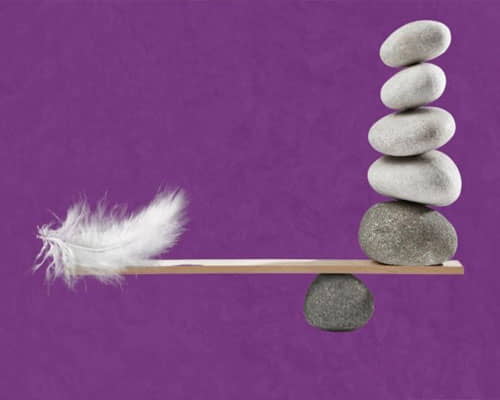
There is 8 Limbs in a Yoga Philosophy, Yama, Niyam, Asana, Pranayam, Pratyahara, Dharana, Dhyana, Samadhi.
- Yoga Sutra - discipline, types of thoughts, God
- v 7 Chakras – Muladhara, Swadhisthana, Manipur, Anahata, Visudha, Anjya, Sahasrara
- v Three types of gunas – Satva, Rajas & Tamas
- v Three types of body – Sthula, Sukhma & Karana
- v Types of Yoga (Hatha, Karma, Bhakti, Astanga)
- v What is yoga? Introduction of Yoga
- v What is philosophy?
- v What are the obstacles to yoga?
- v What are the causes of pain?
- v What are the eight limbs of Yoga?
- v Exercises
- v Exam
Teaching Methodology
You will be able to learn about the yoga teaching methodology, through the yoga teacher training course at Hrishikesh Yoga School. As a teacher, you need to understand the skills that are required apart from yoga knowledge. Teaching is an art, which you must ensure. Strategies are very important, when you have to apply the knowledge of yoga to teach various students. At Hrishikesh Yoga School, you will learn about the lessons under yoga and also the art of teaching. Your first aim is to create a welcome environment inside the class. And after the students are comfortable with you, you have to teach modifications. If you have students, who have some physical limitations, you ought to use proper modifications and variations.
You have to use terms like relaxation in the classes, instead of stretches. Many beginners may have problems, when they hear words like stretches. Yoga is all about learning, practicing and mastering poses, kriyas and breathing issues. Adjustments and alignments are something that you need to incorporate in your classes as well. You will learn all this and more as a part of the course. At Hrishikesh Yoga School, the management will provide you with the complete training about poses. Communication skills are also highly important for teachers, and you need to use them in the class. Using the right intent, voice modulation and physical settings, in your class is extremely crucial and that is what you will master in the class. So, join the yoga course and get the best benefits from the same today, and affordable rates.

Food & Accommodation
Accommodation & Food

Human body is powerful instrument that has complex structure and it maintain by food . Watch carefully what and how you eat. We should be practical and learn what type of food we should eat , how much food we should eat, and how much liquid we should drink . Overeating or underrating is not good for health. The quality of food and the way in which it is prepared should also be understood. There is no one diet that is perfect for all people. Every person is different and unique. Each of us has different metabolism each requires different quantities of nutrients depending on activity. eating large amount of artificial flavored, highly refined junk food is very unhealthy. You should start by choosing a diet that consists of unprocessed, unrefined, whole foods that do not contain chemical and by eating only when the body needs nourishment.
Most of people do not know what foods they really need. They do not have a sense of what to eat . They may have a sense of when they are hungry but then they eat anything that is easily available. As more described in the ancient manuals, foods falls into two different categories; cleansers and nourishes .Fruits have more cleansing value, while vegetables ,grains, and dairy product s have more nourishing value. It is immaterial whether you are a vegetarian or not, however that the vegetable kingdom does supply sufficient nutritional content to offer all the necessary nutrients, and for those who want to led a spiritual life vegetarian diet might be helpful. However if you are vegetarian you should eat certain high quality food.
Sunflower seeds, almonds, soybeans, dried beans and peas(dals), and some grains have sufficient protein. Indeed some seeds and nuts are as rich as meat as far as protein is concerned. However is simply to combination of a grain such as rice or wheat with a bean (Dall):this creates a complete protein food that contains all the necessary amino acids in their correct ratio. .
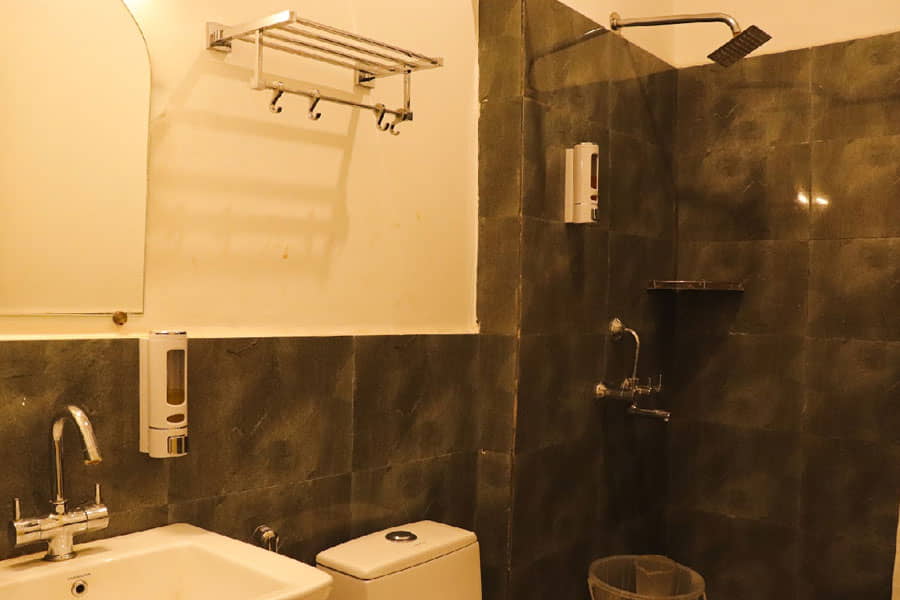


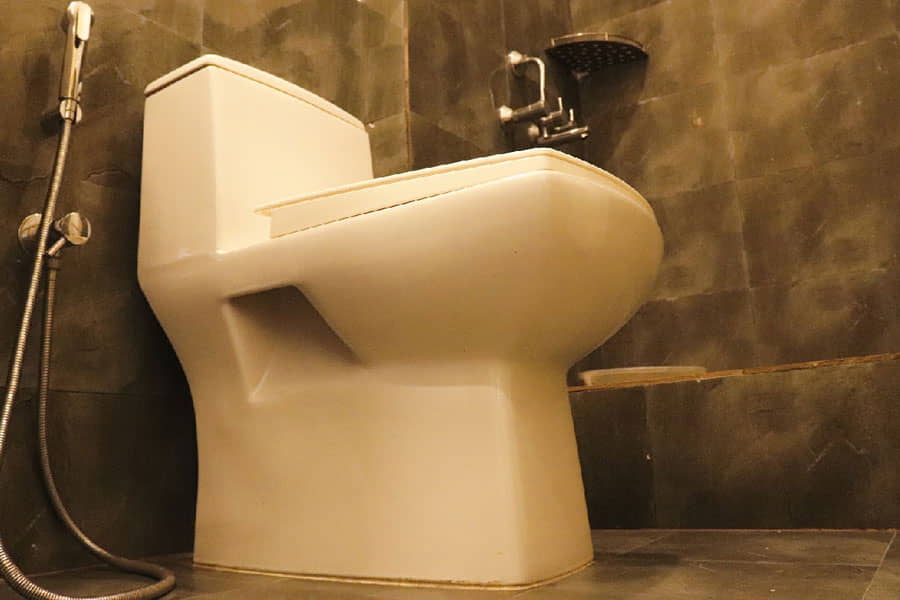


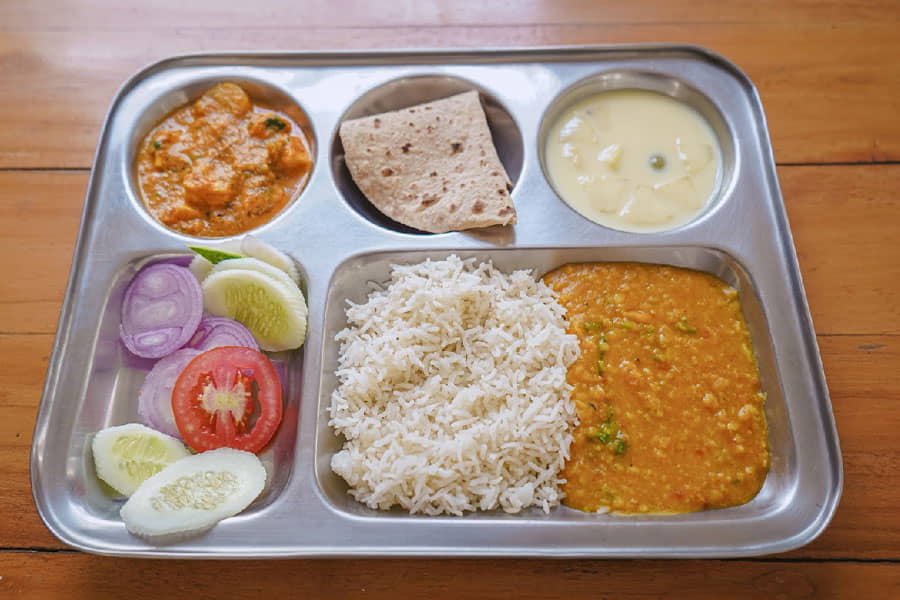
300 hour yoga ttc in rishikesh
Inclusion & Exclusion With 300 Hour Yoga TTC in Rishikesh

- 27 Nights Accommodation
- Course duration- 2nd- arrival - to 29th- the departure of each month ·
- 7 Hours to 8 hours classes Every day
- Accommodation with Garden
- Room with Private Washroom
- Yoga Alliance Certification
- Free Yoga mat and props and other Yoga Equipment
- Orientation, flower decoration & Fire ceremony
- Study Materials - Books ( Asana Mudra Bandha Pranayama, Ashtanga Vinyasa, school hand book, notebook, pen, hand outs,)
- Jal Neti and Sutra Neti
- Japa Mala
- School Hand bag
- Yoga Dress
- Yoga Class in evening at Ganga beach
- One Himalayan excursion and local excursion of Rishikesh
- one Indian cooking class
- 3 Daily nutritious Vegetarian meals
- Free airport pick up from Dehradun Airport
- Cultural Program in the closing ceremony
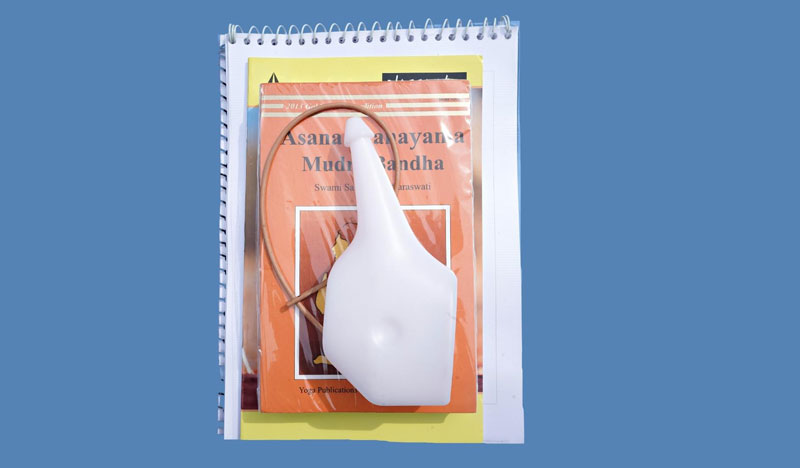
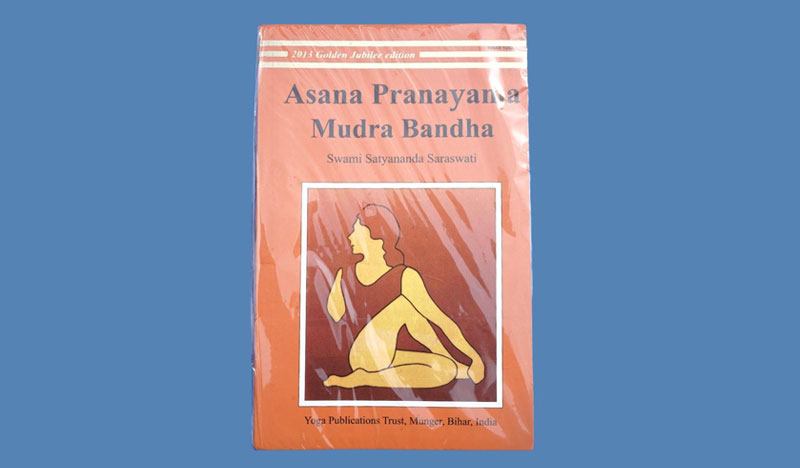
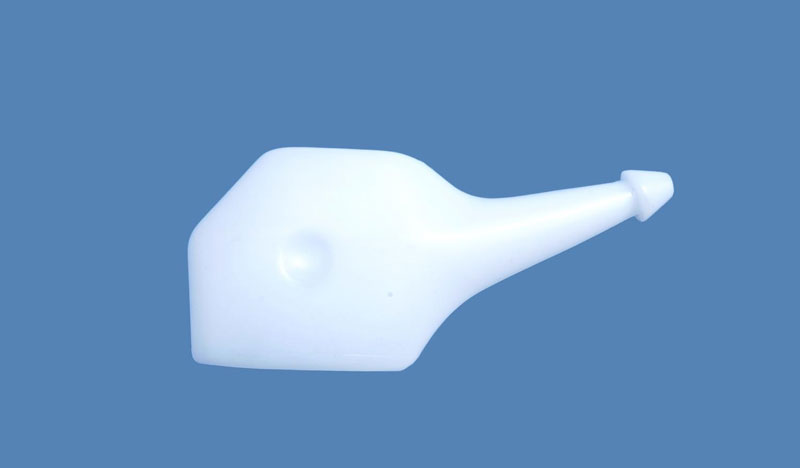
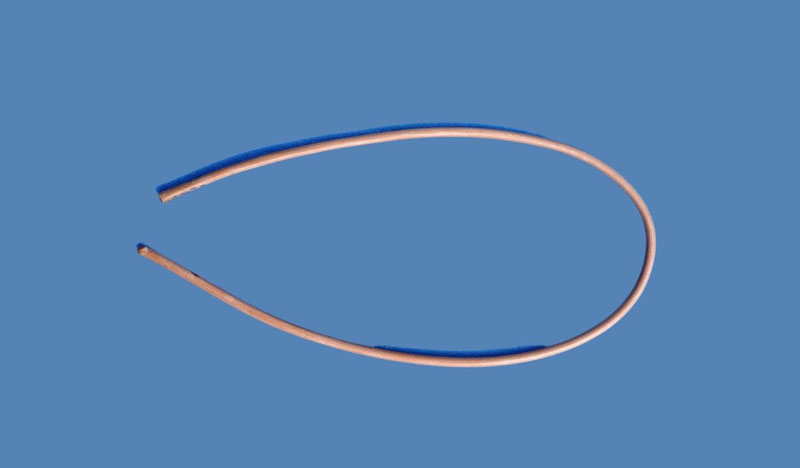
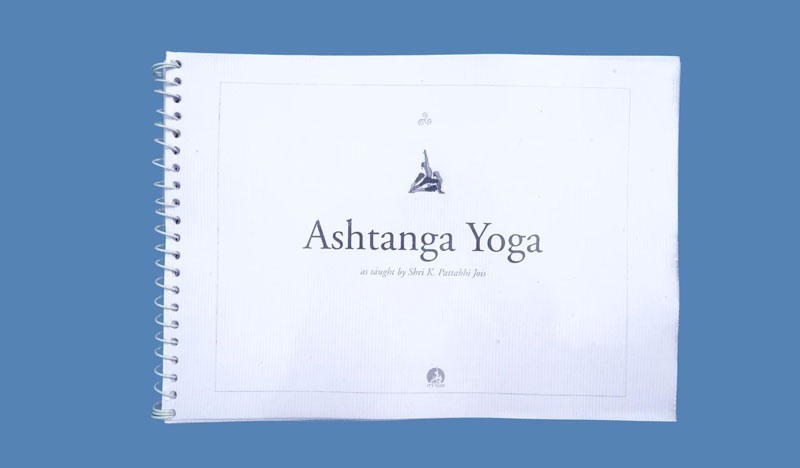
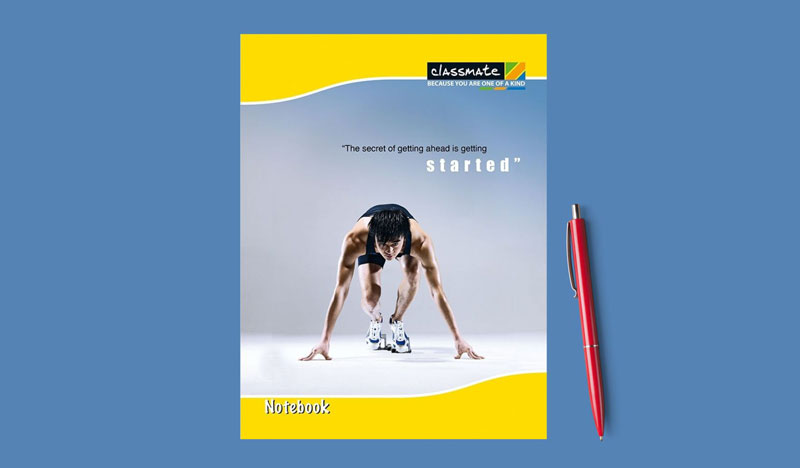
- Private room (available per request)
- Air conditioner (available per request)
- Women herbal beauty, wearing by sharing and all others with the assistance of local ladies
- Ayurvedic treatment and healing training
- Fees for visa
- Pick up from New Delhi (available per request)
- Massages
Is Important
Why Yoga Alliance Certificate Is Important?

Are you looking for a Yoga TTC in Rishikesh? No matter, where you go, you need a proper certification to fall back on. It is nothing, but a sign of credibility. Many schools do not even know, the value of Yoga Alliance. So, you have to steer clear of such schools. The Best Yoga Schools, will have Yoga Alliance certification.
What is Yoga Alliance?In the year 1997, a group of yogis congregated at the San Francisco Yoga Journal Conference, and created a set of standard operating procedures, that would guide yoga teaching standards. These standards today are the benchmarks, based on which yoga is taught worldwide. Since the year 2013, the organization has provided a lot of benefits to the future yogis, students, and also provided numerous yoga workshops, worldwide.
Key Points About Yoga AllianceHere are a few key points, that you to keep in mind. Firstly, getting a Yoga Alliance certification is not mandatory for any school. Many schools across the globe require their employees and teachers to hold a RYT or Registered Yoga Teacher training certification. However, the Yoga Alliance certification is not mandatory per se. The Yoga Alliance certification is more than just a credential. There are a number of benefits that you can avail yourself of.
You should know about them in details.After a school gets the accreditation, it gets a number of benefits. You can access the online workshops, which is free for the members. The school gets a lot of visibility on the online directory of yoga schools and institutions. You also get to join the yoga community, and learn about the latest updates and upgrades.
You can also attend community meetings and social media meets, and get engaged with the community, as a whole.
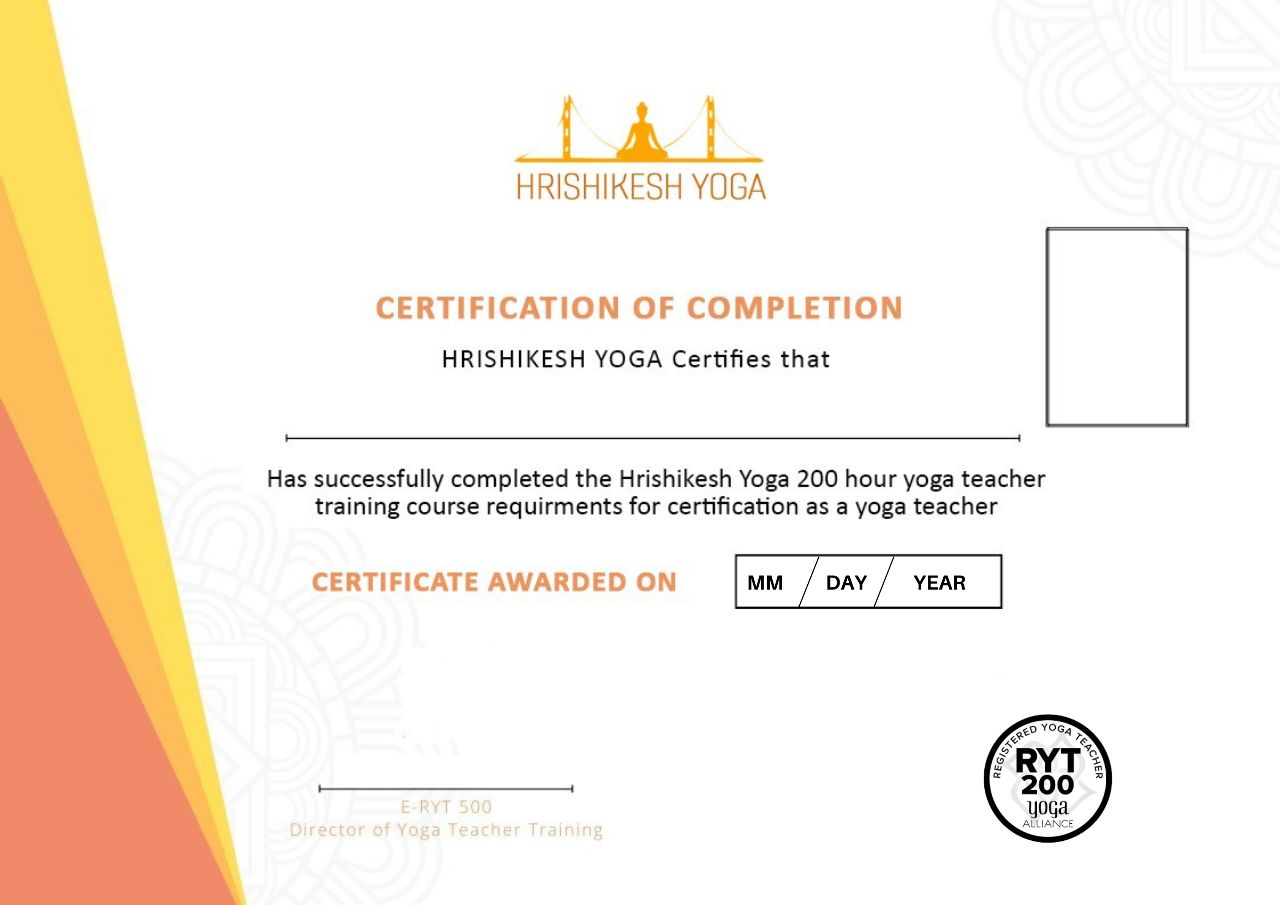
yoga teacher training in rishikesh
Dates Of 300 Hour Yoga Teacher Training Course In Rishikesh

To offer the best attention to every individual the size of our course batch is small. We believe in offering perfect and methodical yoga teachings. Our seats get filled up very easily and rapidly. Book your seat as soon as possible after you go through the available dates.
| Date | Price | Seats | Booking |
|---|---|---|---|
| 02-Jul-2024 to 28-Jul-2024 | Shared - 1350 USD Private - 1650 USD |
Availability- 0 | |
| 02-Aug-2024 to 28-Aug-2024 | Shared - 1350 USD Private - 1650 USD |
Availability - 15 | APPLY NOW |
| 02-Sep-2024 to 28-Sep-2024 | Shared - 1350 USD Private - 1650 USD |
Availability - 15 | APPLY NOW |
| 02-Oct-2024 to 28-Oct-2024 | Shared - 1350 USD Private - 1650 USD |
Availability -15 | APPLY NOW |
| 02-Nov-2024 to 28-Nov-2024 | Shared - 1350 USD Private - 1650 USD |
Availability - 15 | APPLY NOW |
| 02-Dec-2024 to 28-Dec-2024 | Shared - 1350 USD Private - 1650 USD |
Availability - 15 | APPLY NOW |
| 02-Jan-2025 to 28-jan-2025 | Shared - 1350 USD Private - 1650 USD |
Availability - 15 | APPLY NOW |
| 02-Feb-2025 to 28-Feb-2025 | Shared - 1350 USD Private - 1650 USD |
Availability - 15 | APPLY NOW |
| 02-Mar-2025 to 28-Mar-2025 | Shared - 1350 USD Private - 1650 USD |
Availability - 15 | APPLY NOW |
| 02-Apr-2025 to 28-Apr-2025 | Shared - 1350 USD Private - 1650 USD |
Availability - 15 | APPLY NOW |
| 02-Apr-2025 to 28-Apr-2025 | Shared - 1350 USD Private - 1650 USD |
Availability - 15 | APPLY NOW |
This Course
Excursion With This Course

We strongly have faith in the whole development of a person at the time of our yoga teacher training course. Weekly excursions make a vital part of our whole yoga teacher training course curriculum. Every weekend we take out students to neighbouring spiritual and natural places to assist in growing the real sense of a person.
Rishikesh is very famous for its spirituality as well as history. It is a chosen place for tourism in Uttarakhand. There are several activities that our students can do during excursions under the yoga training in rishikesh , such as Ganga Aarti, Rafting, Hiking, etc. There are numerous temples for worshiping along with a magnificent view of the Himalayas. We offer the best retreats sessions and meditation sessions during our excursions.
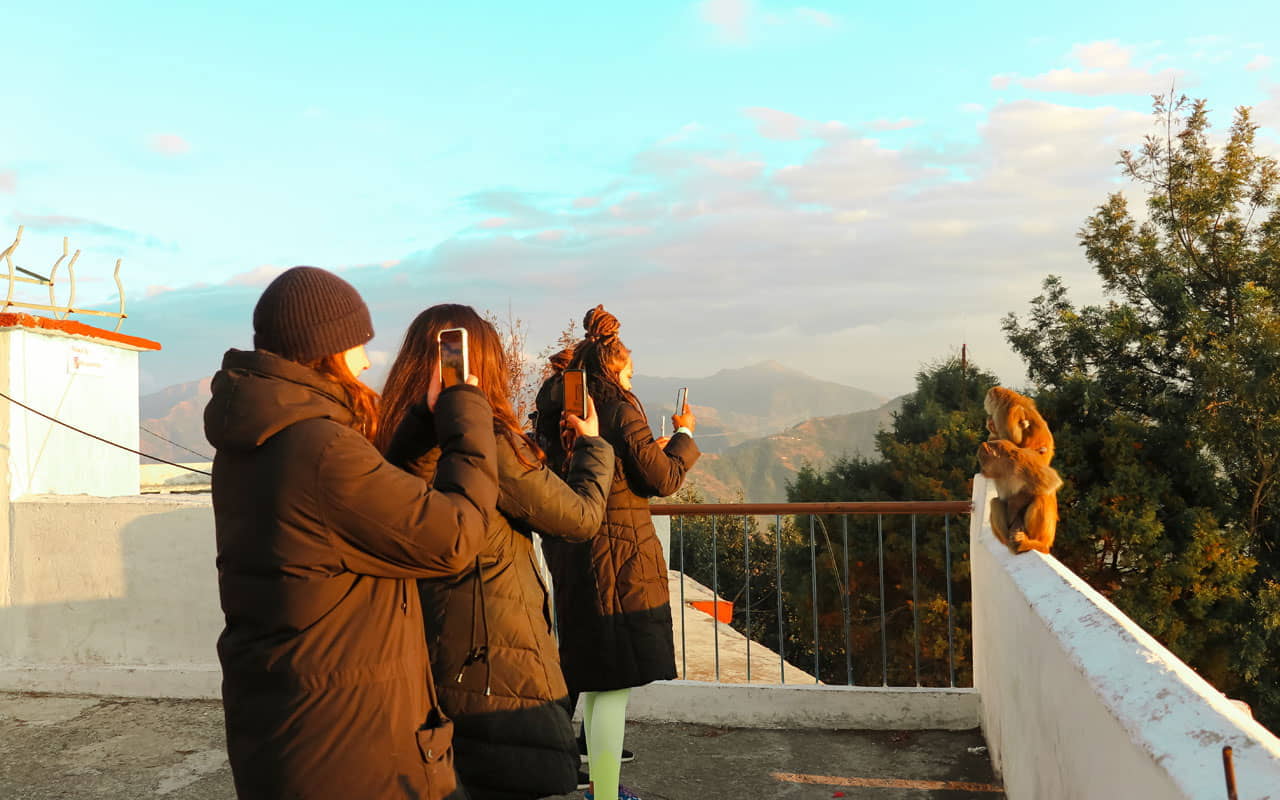
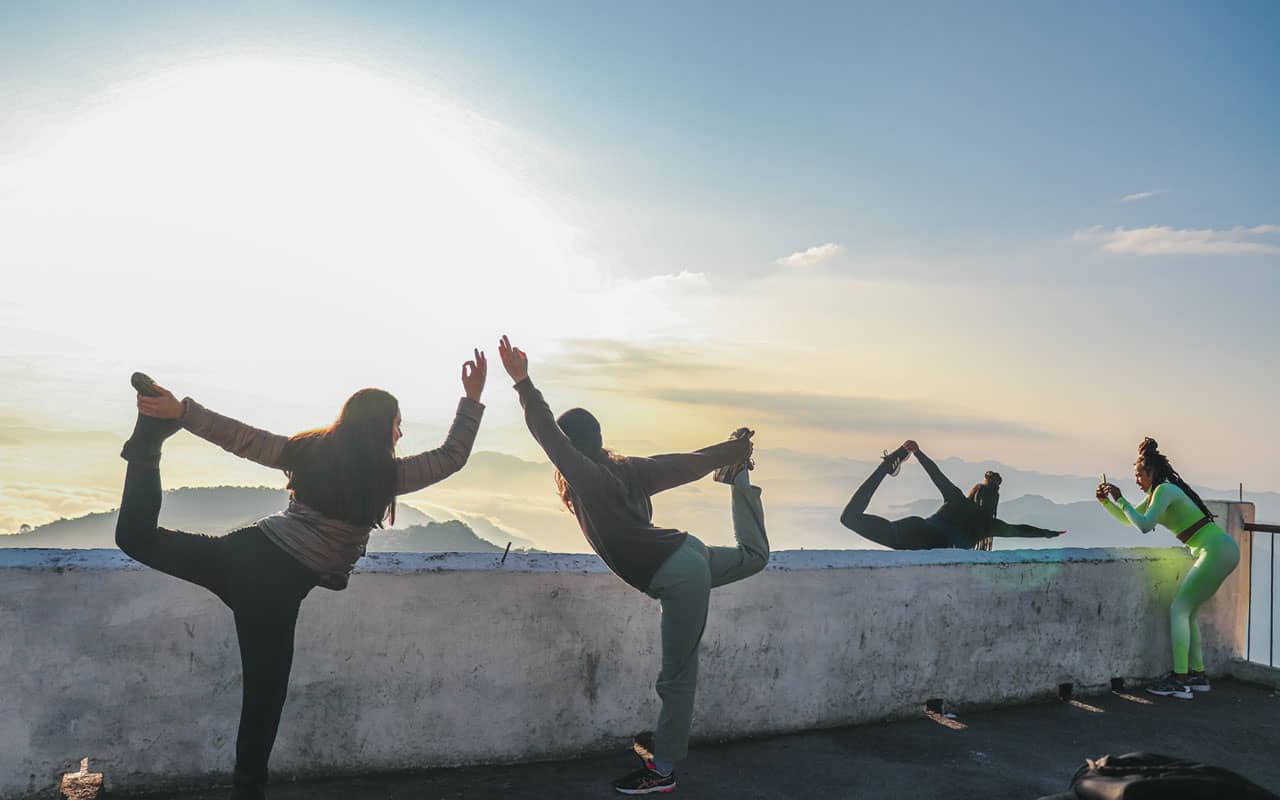

Rules & Refund Policy

Code Of Conducts For Students
We expect Yogic discipline and the required code of conduct from all students who join our course. Hrishikesh Yoga School has set specific disciplinary rules for all of its participants.
- Smoking and Alcohol are not allowed in the school.
- To avoid food wastage we advise students to inform beforehand whenever they have fasting.
- Students must maintain discipline and should pay respect to all teachers.
- All participants must show punctual behavior and should arrive for classes on time. Those who come late will not be allowed for joining sessions.
- Anything burrowed from school like books, or any goods must be returned on time
- We provide accommodation only to participants and not their friends or family
- Students have to maintain complete attendance.
Compliance With Yoga Alliance Guidelines
Our yoga institute located in Rishikesh instructs us to follow the below-given policy guideline
- Policies for Anti-Harassment: Yoga Alliance offers safety measures against all kinds of Harassment like sexual, personal, online, physical, discriminatory, etc.
- Policies for Anti-retaliation: This is a policy that offers a shield against the defilement of any form against those reporting abuse of the code of conduct.
- Policies for attendance: This policy offers guidance about the attendance of students and for participating in any event.
Refund Policy
- The advance payment made for the course is not refundable. In some cases, we might arrange for joining some other yoga teacher training program.
- Our yoga school in Rishikesh accepts course cancellation but the advance payment made for the course will not be returned.
- We do not charge anything for course cancellation. You need to inform us about the course cancellation.
